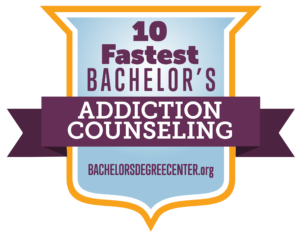
If you are considering pursuing an addiction counseling bachelor’s degree, then it might be worth looking into an accelerated addiction counseling degree. There are several advantages to pursuing an accelerated addiction counseling degree, such as time, money, and the benefit of having more degree options. In many cases, accelerated programs are not only able to be completed more quickly, but they also save time for other course options for those enrolled in four-year programs. It isn’t uncommon for graduates who enroll in accelerated programs to complete their schooling with dual degrees.
Accelerated courses also result in less travel time, class time, and many of these programs require less material expense. That also doesn’t include the fuel cost and food cost for anyone who drives to a class or campus. In addition to saving time and money, and the aforementioned possibility of dual degrees or specialized studies becomes more available. Another advantage of taking accelerated classes isn’t about saving time or money, it is about being smart. This is the case for those who either already have a degree or who want to enhance their degree.
Methodology: Ranking the Best Accelerated Addiction Counseling Degree Programs
Bachelor’s Degree Center editors know speed isn’t everything, so we start with accredited, reputable programs that offer legitimate ways to speed up a degree. From there, we rank programs by their cost, student reviews, and salary potential, using current IPEDS and Niche data.
1. Grand Canyon University
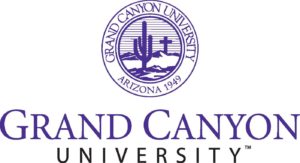
Grand Canyon University offers an accelerated addiction counseling degree that accepts up to 90 transferred credits. This BS in counseling addiction concentrates on the impact of addiction, which tears apart families and harms whole communities. students learn what they need to know to become abuse counselors. Topics studied include chemical dependency, substance abuse and counseling. This program prepares graduates to serve as counselors to individuals and families.
GCU offers more than 200 academic majors, with 75% of them available online. This large institution has 21,000 undergraduate students and offers online courses to 75,000 students.
What We Like: At 99%, almost all students receive some sort of financial aid.
Degree: BS in Counseling — Addiction
Grand Canyon University BS in Counseling — Addiction
2. Eastern Kentucky University

Eastern Kentucky University has an accelerated addiction counseling degree which allows students to transfer up to 80 credits. the school offers a baccalaureate degree in psychology focusing on addiction counseling. The program provides the skills needed for graduates to obtain entry-level positions in social services careers. Completing this degree helps students prepare for the Psychiatric Rehabilitation Practitioner (CPRP) certification.
EKU accepts 94% of students who apply, meaning that those who want to attend have a fair shot at doing so. This midsize school has 10,000 undergraduate students and is located in the Lexington area. Among its many popular majors, some students choose nursing, criminal justice and liberal arts.
What We Like: The school’s 94% acceptance rate combined with a financial aid rate of 98% make EKU an attractive choice for those seeking an accelerated addiction counseling degree.
Degree: BS in Psychology — Addiction Counseling
Eastern Kentucky University BS in Psychology — Addiction Counseling
3. Alvernia University
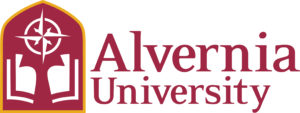
Students can complete the accelerated addiction counseling degree at Alvernia University in two years. This online degree program focuses on preparing students to complete the certified alcohol and drug counselor (CADC) certification. Students learn how to offer impactful leadership in the field of addiction, child welfare, criminal justice and mental health. Alvernia has turned out thoughtful graduates for 40 years and is one of the oldest and best online schools.
Alvernia University was founded by the Franciscan sect and now has a diverse student body of 3,000 students from 14 countries and 25 states. The school is located near Reading, PA, on a beautiful campus within commuting distance of urban areas. It also offers more than 50 majors and minors to students.
What We Like: Alvernia University accepts 64% of students who apply. Although it’s difficult to get into the school, 100% of students receive some form of financial aid.
Degree: BA in Addictions and Mental Health Treatment
Alvernia University BA in Addictions and Mental Health Treatment
4. Liberty University

Liberty University has an accelerated addiction counseling degree that allows students to transfer up to 75% of credits earned elsewhere. This generous transfer policy makes this one of the most flexible accelerated addiction programs students can take online. Most students complete the program within 3.5 years and choose their own study schedule and venue.
At Liberty University, students can choose from 300 undergraduate and graduate programs. The school offers many scholarships and opportunities for financial aid and also hosts 20 NCAA Division 1 sports teams. Liberty strives to set students up for success in local, national or international careers.
What We Like: Liberty University ranks number six among the country’s best online colleges.
Degree: BS in Psychology – Addictions and Recovery
Liberty University BS in Psychology – Addictions and Recovery
5. Walden University

Walden University accepts up to 135 transfer credits for its unique accelerated addiction counseling degree. This online program teaches students about the many forms that addiction can take. The coursework lays a foundation for counselors who help individuals deal with drug and alcohol substance use disorders, process addictions such as gambling, drugs and pornography, and other mental health disorders. Research holds the key to learning the internal and external factors that influence addiction. Students focus on substance abuse education, working with individuals and furthering treatment research and methodology.
Walden University accepts 100% of students who apply. Of students surveyed, 90% said they could get the classes that they wanted easily and 80% thought the workload was manageable. This is good news for students who need to juggle their schoolwork with jobs and family obligations.
What We Like: All students who attend Walden University receive some sort of financial aid. Additionally, 83% of students felt confident they could get jobs in the field within six months of graduation.
Degree: BS in Psychology — Addiction Counseling or BS in Human Services — Addictions
6. Ottawa University
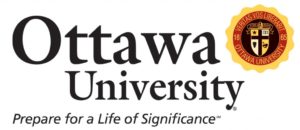
Many students choose Ottawa University’s accelerated online addiction counseling degree. Students earn their degree from the comfort of home. This flexibility gives students the opportunity to decide when and where they can complete their online coursework in addiction counseling. Courses include a wide variety of topics including alcohol and substance abuse disorders, addiction, chemical dependency, harm reduction and dual diagnosis. Dual diagnosis focuses on both addiction and underlying mental health disorders that influence dependency and recovery.
Ottawa University is a private Christian college. It’s located in Ottawa, Kansas, and, with just 700 undergraduate students, the school is extremely selective about which students it will admit. It has an acceptance rate of just 15% of those who apply. Nonetheless, there are several popular majors such as kinesiology and psychology.
What We Like: All students who attend Ottawa University receive some form of financial aid.
Degree: BS in Addictions Counseling
Ottawa University BS in Addictions Counseling
7. Southern New Hampshire University
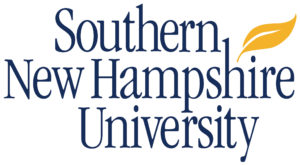
The accelerated addiction counseling degree at Southern New Hampshire University allows up to 90 transfer credits. This fully online degree allows students to pursue their passion to help others while continuing to work to support their families. While the online environment poses unique challenges, it gives students who wish to become drug and alcohol counselors an opportunity to do so in remote locations. Students receive tools and training needed to help those living with alcohol and substance use disorders. Graduates become counselors who endeavor to help those wishing to make amends and live productive lives.
SNHU has educated students for nearly 90 years. There are over 300 majors available at the graduate and undergraduate levels, giving students access to the information needed to complete their undergraduate degree. The school has been recognized as a most innovative regional university, according to U.S. News and World Report.
What We Like: Southern New Hampshire University is the 5th ranking best college in the state.
Degree: BA in Human Services — Substance Abuse
Southern New Hampshire University Services — Substance Abuse
8. Crown College

Crown College also offers an accelerated addiction counseling degree. This online program gives students the knowledge and skills needed to help those with substance use disorders. Students take a close look at the effects of substance abuse on several layers of society, including individuals, families, and the entire community. The science-based part of the curriculum focuses on the emotional, cultural, and financial consequences of addiction. Graduates emerge prepared to complete the requirements to become Licensed Alcohol and Drug Counselors (LADC).
Crown College is equipped to help students become part of the workforce while retaining their Christian values. The school offers numerous advantages such as the biblical worldview, small class sizes and a long history of educating students since its founding in 1916.
What We Like: Students who attend Crown College typically receive some sort of financial aid. In fact, 97% of students receive some form of financial assistance.
Degree: BS in Alcohol and Drug Counseling
Crown College BS in Alcohol and Drug Counseling
9. Aspen University
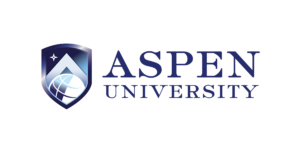
Full-time students can complete Aspen University’s accelerated addiction counseling degree within three years online. The school offers a Bachelor of Arts degree in psychology and addiction studies designed to help students who wish to become addiction counselors. Graduates successfully master essential concepts in sociology, addiction theory, and psychology. They typically require more training to prepare for their licensing exams and other credentials.
This above-average university is located in the Denver area and enrolls under 1,000 students. Aspen has a generous acceptance policy, inviting 100% of those who apply to become students.
What We Like: Of those surveyed, four out of five students say it’s easy to get the classes they want and that they have a manageable workload.
Degree: BA in Psychology and Addiction Studies
10. CSU Global

CSU Global offers a BS in Human Services that concentrates on addiction studies. This accelerated addiction counseling degree can be completed online and is geared for those who want to find a career in addiction therapy. Students study key concepts in a multidisciplinary program that includes sociology, psychology and addiction treatment concepts. In order to prepare for state licensure, students often require additional preparation. However, this program gives them a wide background in alcohol and drug use disorder treatment.
CSU Global is a fully-online member of the Colorado State University system and one of the first institutions of its kind — a dedicated, online public university. The school’s flexible format provides a number of benefits to students who live in remote areas or need flexibility due to work and family obligations.
What We Like: The school has a generous acceptance policy of 99%, meaning that almost every student who applies gets the green light to attend the university.
Degree: Human Services BS
CSU Global BS in Human Services
What If I Already Have a Bachelor’s?
For those who already have a bachelor’s degree, either in a related or affiliated field or course of study, accelerate programs are smart options for several reasons. For many addiction counseling qualifications, the completion of a bachelor’s degree in a variety of fields combined with an online substance abuse counseling certificate online meets the requirements.
What that means for many students is that it doesn’t necessarily require an addiction counseling bachelor’s degree to become an addiction counselor. An online abuse counseling certificate from an accredited program in correlation with a bachelor’s degree in a field such as Arts and Humanities or Social Sciences will qualify most graduates.
The most important aspect of adding an online substance abuse counseling certificate is the accreditation aspect. Any accredited certificate in addiction counseling online will typically suffice and deem a candidate with a bachelor’s in a related field as qualified. This aspect of any addiction counseling certificate online is important for several reasons.
Accreditation of a substance abuse counseling certificate online verifies that the program is approved by the necessary and appropriate governing boards and or committees. These are most often warranted from organizations on either the state or government level.
Earning an accredited addiction counseling certificate online also ensures that your credentials will be recognized. This is a vital aspect and advantage of having an accredited online substance abuse counseling certificate. Even with the most respected and honored degree, most addiction counseling roles require an accredited substance abuse counseling certificate.
The other important aspect of earning an accredited addiction counseling certificate, aside from the convenience and flexibility of course options, is the opportunities it will avail. Becoming a certified addiction counselor means stepping into more than a job but also a very important and sometimes even life-saving role.
Beyond certificate programs, social workers and mental health counselors who want to go into substance counseling can get an online master or doctorate in that specialization. A master’s degree program may also accept work experience for credit hours, making the enrollment process more streamlined. There may be no need for a practicum for a graduate degree either if you have mental health counseling experience.
If you have an associate degree, high school diploma, or GED, the educational requirements for online substance abuse counseling degrees vary. Online requirements are usually less than on-campus, but may include a high GPA, letters of recommendation, and other credentials.
What Does a Substance Abuse Counselor Do?
The substance abuse counseling job description only defines in part the role of the position of substance abuse counselor. While there are many definitive and common aspects to most every substance abuse counseling job description, there will always be variations.
Some of the staples of the substance abuse counseling job description include assessing clients, providing a variety of therapy services (e.g. psychotherapy, dialectal, behavioral, etc.), counseling, providing a support system, and developing recovery plans. These are common traits and responsibilities that are found in nearly every substance abuse counseling job description.
Some tasks that addiction professionals perform include:
- treatment planning
- case management
- group counseling
- social work
- crisis intervention
- substance abuse treatment
- identifying addictive behaviors
Where the job details can get dramatically diverse are within the type of facility and the type of conditions being treated. The job description for a counselor in private practice, for example, may look far different than the duties and job description of a counselor working in a busy clinic.
In another scenario, an addiction counselor treating a client who is suffering from substance abuse will likely have a far different set of client instructions when treating a client with sex addiction or an eating disorder. Counseling is a personal and often intimate process, and it is unlike almost any other field or practice.
What is very much the same, however, is that those who become addiction counselors make a difference in people’s lives. It might be that an accelerated addiction counseling program gets you into the business of helping people sooner, or maybe it is just a smart move both professionally and financially? The Bureau of Labor Statistics sees increasing need for substance abuse counselors. Whatever the reason for choosing an accelerated addiction counseling program, it is a career path that makes sense and that can make a difference.
Related Rankings:
25 Best Bachelor’s in Addiction Counseling
